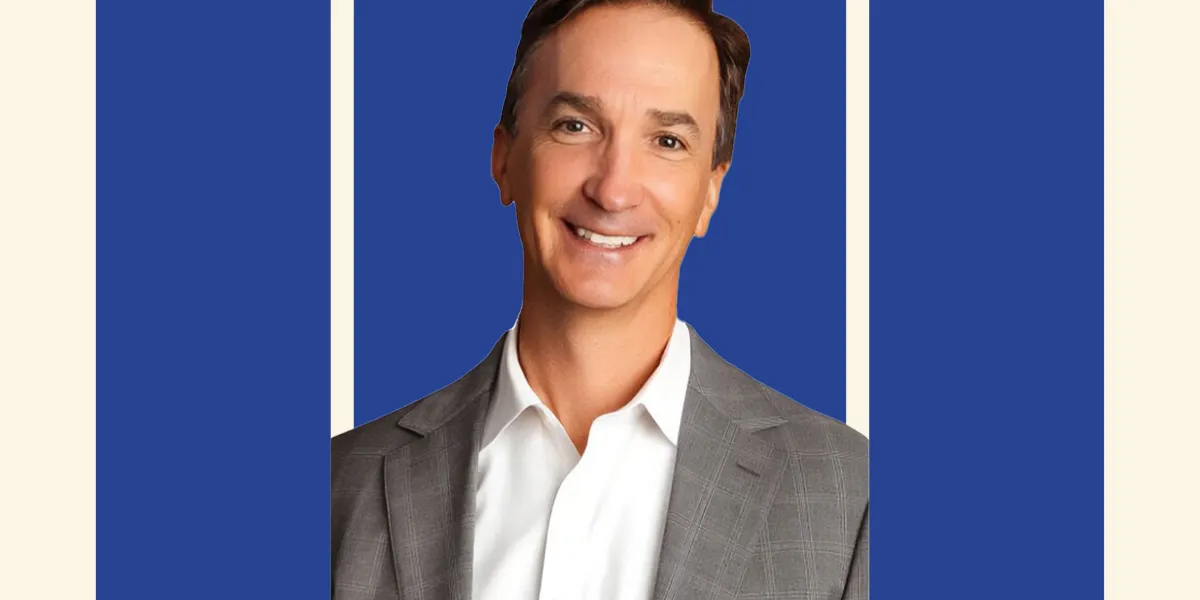
Good morning. PepsiCo is overhauling its beverage portfolio—refueling interest in drinks like Gatorade—and named a new finance chief.
On Thursday, the beverage giant (No. 45 on the Fortune 500) announced that Steve Schmitt will join as EVP and CFO effective Nov. 10. Schmitt, a Walmart veteran, currently serves as EVP and CFO for Walmart U.S., overseeing the finance function for its multibillion-dollar omnichannel organization. Schmitt joins at a trying time with activist investor Elliott Management pushing for major change within the company.
Schmitt joined Walmart in 2016, holding leadership positions across e-commerce, club, and mass businesses, and previously worked at Yum! Brands and UPS. At PepsiCo, Schmitt succeeds Jamie Caulfield, who will retire next year after more than 30 years at PepsiCo, but will stay on as an advisor through May 15.
PepsiCo CEO Ramon Laguarta highlighted Schmitt’s expertise in complex supply chains, adapting to omnichannel consumers, and delivering operational excellence at scale as “impactful” for PepsiCo’s growth strategy.
PepsiCo beat Q3 earnings expectations on both revenue and adjusted profit. However, Schmitt joins the company amid growing activist pressure. In September, Elliott Management disclosed a $4 billion stake in PepsiCo, labeling it a “dramatic underperformer” and urging a strategic turnaround to boost growth and profitability.
Elliott criticized PepsiCo’s North America beverage business for lagging behind peers in growth and margins, and argued that the company’s proliferation of brands and SKUs has impaired focus and execution. In response, PepsiCo stated that it values shareholder feedback, is reviewing Elliott’s perspectives, and remains confident in its current strategy around innovation, portfolio transformation, and productivity.
In a new feature article, my Fortune colleague Phil Wahba takes a deep dive into PepsiCo’s beverage overhaul, which includes a Gatorade reboot. Ram Krishnan, the CEO of PepsiCo’s U.S. beverages division, has taken the reins of a years-long effort to return Gatorade, the original bright-colored sugary sports drink, to growth.
“The stakes are high for PepsiCo. With $29 billion a year in revenue, North America Beverages is the food-and-beverage giant’s single biggest division,” Wahba writes.
Gatorade’s revamp includes new protein-focused products and expanded offerings like powdered mixes. Its newest release, Gatorade Lower Sugar—which contains 75% less sugar than the original and no artificial flavors or sweeteners—will arrive in stores in early 2026.
But Krishnan is facing intense pressure to make bold changes not just at Gatorade but across the beverage portfolio. “Other moves by Krishnan include the nearly $2 billion purchase in May of prebiotic soda Poppi and in late summer, PepsiCo’s increased stake in Celsius Holdings, making the brand its leader energy drink and one popular with millennial and Gen Z gym-goers and other active people,” Wahba writes. (You can read the complete article and more about Krishnan’s strategy at PepsiCo here.)
The months ahead will reveal whether a new CFO and a bold beverage play can satisfy investors and spark lasting growth.
Have a good weekend.
Sheryl Estrada
[email protected]
Leaderboard
Fortune 500 Power Moves
Todd Cunfer was appointed EVP and CFO of The Campbell’s Company (No. 425), effective Oct. 20. Cunfer succeeds Carrie Anderson, who is leaving the company to pursue new opportunities. Cunfer brings over 25 years of experience. He joins Campbell’s from Freshpet, where he served as CFO since 2022. Before that, he was CFO at Simply Good Foods Company, a nutritional foods and snacking products company. Previously, Cunfer spent over 20 years in senior finance roles at The Hershey Company, including VP of international finance, VP of global supply chain finance and VP of North America finance.
Every Friday morning, the weekly Fortune 500 Power Moves column tracks Fortune 500 company C-suite shifts—see the most recent edition.
More notable moves this week:
Anthony Armstrong has been appointed CFO of xAI, Elon Musk’s artificial intelligence group, the Financial Times reports. Armstrong will replace Mike Liberatore, who left the startup this year for OpenAI after three months in the role. Armstrong will reportedly oversee the finance function for both xAI and the social media platform X. Musk merged X and xAI in March, valuing the combined group at $113 billion. Formerly the head of global technology mergers and acquisitions at Morgan Stanley, Armstrong was part of the team hired by Musk to facilitate the acquisition of X, then known as Twitter. Most recently, Armstrong worked for the Trump administration as a senior adviser to the Office of Personnel Management.
Marshall Witt was appointed senior vice president and chief financial officer of FedEx Freight, effective Oct. 15. Witt’s appointment completes FedEx Freight’s executive leadership team, joining the previously announced leadership roles. FedEx Corp. (NYSE: FDX) is preparing for the separation of FedEx Freight into an independent company. Witt is the former CFO of TD SYNNEX, a global IT distributor and solutions provider. Before that, he spent 15 years at FedEx, primarily within the FedEx Freight finance organization, where he most recently served as senior vice president of finance and controller.
Mary Holt was appointed CFO of CompoSecure, Inc. (NYSE: CMPO), a designer and manufacturer of metal payment cards. Holt succeeds Tim Fitzsimmons, who is retiring. Holt brings more than three decades of experience. Most recently, she served as SVP of finance operations, utilities and power SBG at Warren Equity Partners. Before that, she spent over 17 years at Honeywell, advancing through a series of increasingly senior roles, including VP of business analysis and planning/corporate finance; CFO of productivity solutions and services; and CFO for corporate entities and functions.
Brent Wahl, CFO of NextDecade Corporation (Nasdaq: NEXT), has resigned from his position, effective Oct. 20. The company has appointed Mike Mott, SVP of enterprise transformation, as interim CFO. Wahl is leaving NextDecade to join a digital infrastructure company, and he has agreed to serve in a consultant capacity through Dec. 31, 2025. The company will initiate a search process to find a permanent successor.
Anthony Coletta was appointed CFO of Sprinklr (NYSE: CXM), a customer experience management platform. Coletta has more than 20 years of experience. Most recently, he served as chief investor relations officer at SAP SE. Before this, Coletta served as CFO for SAP North America.
Gibb Witham was appointed president and CFO of Hack The Box (HTB), a cybersecurity training and upskilling platform. Witham brings two decades of experience at the intersection of finance, strategy, and cybersecurity. He joins HTB from Paladin Capital Group, a cybersecurity-focused investment firm and early investor in HTB.
Big Deal
Grant Thornton has released the third installment of its Digital Transformation survey, which examines executives’ perspectives on the role of governance and compliance in technology use and how these factors support resilience. Sixty percent of executives identified structured frameworks and specialized tools designed to manage rules, identify risks, and ensure compliance with regulations as essential tactics for making their technology use safer and more resilient.
Respondents were asked to rank the top priorities for their organizations’ technology enhancements; 57% chose cybersecurity and risk management as one of their top technology objectives. The findings are based on a survey of more than 550 cross-functional senior executives across industries.
Risk assessments are the foundation of strong resilience, according to Derek Han, cybersecurity and privacy leader for the firm’s risk advisory practice. Where these processes were once performed manually with the help of workflow tools, companies are now implementing AI to assist in the process. However, Han notes the importance of humans collaborating with AI.
“If we start using AI to simply replace humans to monitor, respond to, and mitigate security risks, the human foundation for cybersecurity could be diminished,” Han said in a statement. “It’s important to strike a balance between the use of AI tools and continuing to develop the expertise and critical thinking of the human security team.”
Going deeper
Here are four Fortune weekend reads:
“Wells Fargo was reeling from scandal. Jamie Dimon protégé Charlie Scharf bet his career on saving the 173-year-old bank” by Shawn Tully
“Exclusive: Coinbase and Mastercard have both held advanced talks to buy stablecoin startup BVNK for around $2 billion” by Ben Weiss and Leo Schwartz
“California’s ‘impossible’ dream of ending fossil fuels isn’t working, and now it’s looking at price spikes and shortages” by Jordan Blum
“You’re 10 times more likely to have a flight delay during the government shutdown, Transportation Secretary says: ‘These controllers are stressed out’” by Sydney Lake
Overheard
“In finance, as in life, the scariest things happen when the lights go out. Whether the rules change or not, what really matters is what investors demand — and what markets are willing to tolerate.”
—Richard Torrenzano, CEO of The Torrenzano Group, writes in a Fortune opinion piece titled, “Fewer earnings reports, more regret: The high cost of going quiet.” Torrenzano weighs in on the debate on whether public companies should end quarterly earnings and move to semiannual disclosures. For nearly a decade, he was a member of the New York Stock Exchange management and executive committees.















